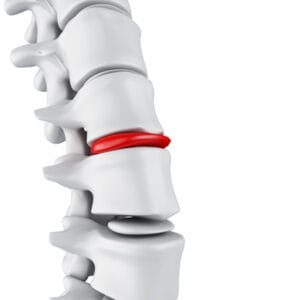Pregnancy-related back pain is a common discomfort experienced by many pregnant women. This type of pain can vary in intensity and location, but it is often related to the changes that occur in the body during pregnancy. Pregnancy-related low back pain is a common complaint that occurs in 20–90% of pregnancies.
What are the causes of back pain during pregnancy?
There are several possible mechanisms of injury that could be causing pregnancy-related LBP. During pregnancy, changes occur in the facet joints, in the back muscles, and in ligaments. This is mainly caused by the increased release of the hormone relaxin, which causes ligament laxity, and therefore can affect the stability of the spine and lead to back pain.
During pregnancy, the enlarging gravid uterus changes the load and body mechanics. It shifts the center of gravity forward, increasing the stress on the lower back. Postural changes can be used to balance the anterior shift possibly causing an extra lordosis. This increases the natural inward curvature of the spine, which increases the mechanical strain on the lower back. It also puts extra stress on the intervertebral disc, possibly causing a decreased height and overall compression of the spine.
Another contributor is the increase in weight that comes with pregnancy. On average, about 11-15 kilograms are gained during pregnancy. The weight gain increases the amount of force placed across joints, changes the center of gravity, and forces the patient into an anterior pelvic tilt.
The abdominal muscles also stretch to accommodate the expanding uterus. As they stretch, the muscles become tired and lose their ability to maintain normal body posture, causing the lower back to support the majority of the increased weight of the torso.
How can Physiotherapy help pregnancy related back pain?
Physiotherapy can be a valuable tool in managing and alleviating pregnancy-related back pain. Back pain during pregnancy is a common issue, primarily due to the changes in a woman’s body as it adapts to the growing fetus. Physiotherapy can help in several ways:
- Pain Relief:
- Manual Therapy: Physiotherapists may use techniques such as soft tissue massage, joint mobilization, and gentle stretches to relieve muscle tension and pain in the back and surrounding areas.
- Heat or Cold Therapy: Applying heat or cold packs can help reduce inflammation and muscle tension.
- Exercises:
- Strengthening Exercises: Physiotherapists can recommend exercises to strengthen the muscles of the back, abdomen, and pelvic floor. These exercises help support the spine and reduce the strain on the back.
- Stretching Exercises: Gentle stretching exercises can improve flexibility and relieve tightness in the muscles.
- Posture Correction: Physiotherapists can provide guidance on maintaining proper posture during daily activities and when sitting or standing for extended periods.
- Core Stability:
- Teaching core stabilization exercises can help support the spine and reduce back pain. Strengthening the deep abdominal and pelvic floor muscles can improve stability.
- Pelvic Floor Training:
- Pelvic floor exercises can address issues related to pelvic pain or incontinence, which can sometimes be associated with back pain during pregnancy.
- Education:
- Physiotherapists can educate pregnant individuals about body mechanics and ergonomics to reduce strain on the back.
- They may also provide advice on proper lifting techniques and suggest modifications for daily activities.
- Supportive Devices:
- In some cases, physiotherapists may recommend support belts or braces to help alleviate back pain by providing additional support to the abdomen and lower back.
- Pain Management:
- Physiotherapists can offer strategies for managing pain, including relaxation techniques, breathing exercises, and hydrotherapy.
- Individualized Treatment:
- Physiotherapy treatment plans are tailored to the individual’s specific needs and may evolve as the pregnancy progresses.
It’s important to consult with a qualified physiotherapist before starting any new exercise or physiotherapy program during pregnancy to ensure it is safe and appropriate for your specific situation. Physiotherapy can play a crucial role in managing pregnancy-related back pain and improving overall comfort and quality of life during pregnancy.
To see one of our physiotherapists for pregnancy-related back pain click here.



